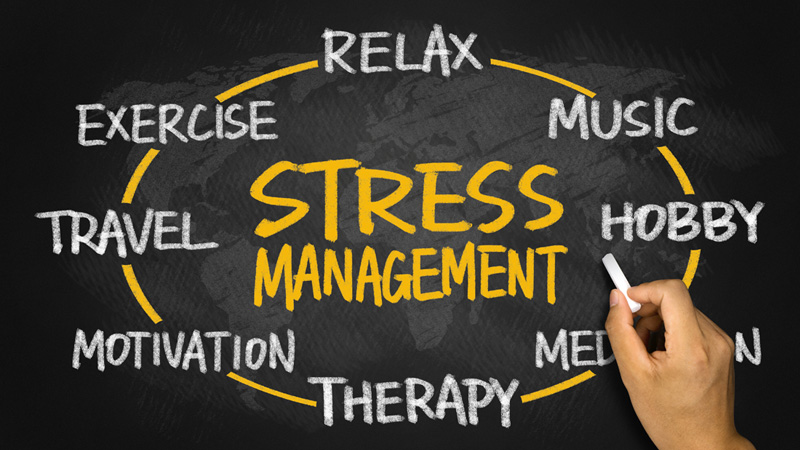Psychological Stress: Understanding, Effects, and Management
Stressed woman
Table of Contents
ToggleStress is an inevitable part of life. Whether it’s triggered by work, relationships, or other external factors, we all experience stressful situations from time to time. However, stress is not always a negative force. In fact, there are different types of stress, including both positive and negative stress, each with its own impact on our well-being. In this comprehensive guide, we will explore the definition of psychological stress, its effects on our health, common signs to watch out for, and effective strategies for stress management.
Table of Contents
Understanding Psychological Stress
The Effects of Psychological Stress
Recognizing Signs of Psychological Stress
Practical Strategies for Stress Management
Seeking Professional Help with psychologist
1. Understanding Psychological Stress
Psychological stress is a multifaceted concept that encompasses both positive and negative aspects. While negative stress, also known as distress, can cause anxiety, hinder performance, and lead to various health issues, positive stress, called eustress, can actually be beneficial. Eustress can provide motivation, enhance focus and energy, and even evoke feelings of excitement. It’s important to recognize that stress can be both good and bad, depending on how it is managed and the context in which it occurs.
2. The Effects of Psychological Stress
Chronic stress can have profound effects on our physical and mental well-being. Prolonged exposure to distress can lead to a range of health issues, including headaches, digestive problems, sleep disturbances, and psychological strains such as anxiety and depression. Furthermore, untreated chronic stress can contribute to high blood pressure, a weakened immune system, obesity, and heart disease. It is crucial to address stress and develop effective coping mechanisms to prevent these long-term consequences.
3. Recognizing Signs of Psychological Stress
Identifying the signs of stress is essential in managing its adverse effects. Stressors can vary from person to person, and they can include relationship conflicts, work responsibilities, financial strain, health problems, and traumatic incidents. It’s important to differentiate between stressors and stress responses. Common physical, psychological, and emotional signs of chronic stress include rapid heart rate, elevated blood pressure, feeling overwhelmed, fatigue, difficulty sleeping, poor problem-solving, and changes in behavior such as social withdrawal and self-medication.
4. Practical Strategies for Stress Management
Managing stress effectively is crucial for maintaining overall well-being. By implementing simple changes in your daily life, you can significantly reduce stress levels and improve your health. Here are some practical strategies to consider:

Find a balance
Structure your time in a way that allows you to be productive without becoming overwhelmed. Working efficiently rather than excessively can prevent burnout and improve overall productivity.
Practice self-care
Understand that feeling stressed is normal and does not make you weak. Prioritize self-care activities that help you relax, recharge, and take care of your mental and physical health.
Seek support from trusted individuals
Reach out to friends, family members, or coworkers you trust when you’re feeling stressed. Sharing your feelings and concerns can provide emotional relief and reduce stress levels.
Keep a journal
Set aside time each day to reflect on your thoughts and feelings. Writing them down can help you gain insights into your stressors and how you react to them, leading to better stress management.
Maintain a healthy diet
Proper nutrition plays a vital role in managing stress. Avoid skipping meals, as low blood sugar levels can negatively impact your mood and exacerbate feelings of anger and frustration.
Engage in regular exercise
Physical activity releases endorphins, also known as “feel-good” hormones, which can reduce stress, alleviate symptoms of depression and anxiety, and improve overall well-being.
Prioritize sleep
Adequate rest is essential for stress management. Aim for the recommended seven to nine hours of sleep per night, and if you experience insomnia, consider incorporating periods of rest during the day.
Practice relaxation exercises
Deep, slow breathing and progressive muscle relaxation techniques can help relax your body and mind. Incorporate these exercises into your daily routine to reduce stress levels.
Schedule worry time
Rather than letting worries consume your entire day, allocate specific times to address your concerns. This intentional approach can help reduce the power of stressors and allow for better stress management.
5. Seeking Professional Help
In some cases, stress may become chronic or significantly impact your daily life, leading to the need for professional help. Consulting a therapist or mental health professional can provide you with valuable guidance and support. If your stress is accompanied by frequent headaches, tight jaw, fibromyalgia, chronic fatigue, depression, or panic attacks, it is important to seek professional assistance. When searching for a mental health professional, consider factors such as trust, feeling heard and understood, comfort in expressing disagreement, and their genuine care for your well-being.
Effective therapy can take various forms, including in-person, phone-based, or online sessions. If you’re looking for affordable therapy options, check out the resources available to you.

Conclusion
Psychological stress is an inevitable part of life, but it is essential to understand its different forms and effects. By recognizing the signs of stress and implementing practical strategies for stress management, you can positively impact your overall well-being. Remember that seeking professional help is always an option if stress becomes chronic or significantly impacts your daily life. Prioritizing self-care, maintaining a healthy lifestyle, and developing effective coping mechanisms are key to managing psychological stress and promoting a balanced and fulfilling life.
Note: This article is intended for informational purposes only and should not replace professional medical advice. If you are experiencing severe stress or mental health issues, please consult a qualified healthcare professional.